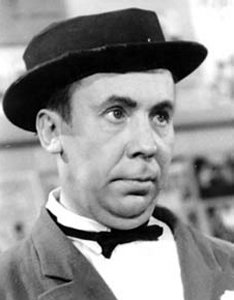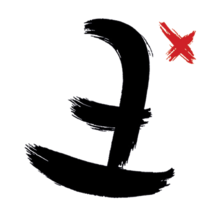
Modern Finnish paganism, also known as Finnish neopaganism or the Finnish native faith, is the contemporary revival of Finnish paganism, the pre-Christian polytheistic ethnic religion of the Finns. A precursor movement was the Ukonusko of the early 20th century. The main problem in the revival of Finnish paganism is the nature of pre-Christian Finnish culture, which relied on oral tradition which may be subject to change over time. The primary sources concerning Finnish native culture are written by latter-era Christians.
Pekka and Pätkä is the name of several comedy films produced by Suomen Filmiteollisuus in the 1950s in Finland, based on the popular Finnish comic characters Pekka Puupää and Pätkä, who can be said to be the Finnish version of Stan and Ollie.

Pekka Puupää is a Finnish text comic and film character, created by Ola "Fogeli" Fogelberg. The character appeared 1925–1975 in the popular comic Pekka Puupää and 1952–1960 in thirteen films produced by Suomen Filmiteollisuus. Pekka Puupää is one of the most well-known and beloved characters in the Finnish popular culture.

Martti "Masa" Elis Niemi was a Finnish actor, comedian, musician and entertainer. He is best known from his role as Pätkä in the Pekka and Pätkä films.

The Sm3 Pendolino is a class of high-speed body-tilting trains operated by VR Group. It is a member of the Pendolino train family; its design is based on the ETR 460. The first two trainsets were assembled in Finland by Rautaruukki-Transtech in the mid-1990s. The rest of the series of eighteen EMUs were built by Fiat Ferroviaria between 2000 and 2006. The trains serve most of Finland's major cities such as Helsinki, Turku, Oulu and Joensuu with a maximum speed of 220 km/h (140 mph), although this speed is only attained between Kerava and Lahti. The train has a power output of 4,000 kW (5,400 hp) and weighs 328 tonnes.

Finland is a predominantly Christian nation where 65.2% of the Finnish population of 5.6 million are members of the Evangelical Lutheran Church of Finland (Protestant), 32.0% are unaffiliated, 1.1% are Orthodox Christians, 0.9% are other Christians and 0.8% follow other religions like Islam, Hinduism, Buddhism, Judaism, folk religion etc. These statistics do not include, for example, asylum seekers who have not been granted a permanent residence permit.

Matti Hagelberg is a Finnish comic book artist, illustrator, graphical designer and teacher. He attended the University of Art and Design in Helsinki and achieved a Master of Arts degree. Hagelberg is the only famous Finnish author to use scratch cardboard as his medium and has won a Puupää hat award of the Finnish Comic Society in 1997. He is married to Katja Tukiainen with one child.
Blues News is a bi-monthly Finnish blues and roots music magazine.

The Sibelius was a train run daily by VR between Helsinki, Finland, and St. Petersburg, Russia. The service began on 31 May 1992 in order to ease congestion on the night service train Repin and due to the fall of the Soviet Union, where traffic was increased on the border.
Irreligion in Finland: according to Statistics Finland in 2020, 29.4% of the population in Finland were non-religious, or about 1,628,000 people. The Union of Freethinkers of Finland and other organisations have acted as interest organisations, legal protection organisations and cultural organisations for non-religious people. In a 2018 international ISSP survey, 40% of the Finnish population said they did not believe in God, 34% said they believed in God and 26% did not know. Nearly one out of every five people in the country is not a member of a religious organisation, and the number of people with no religious affiliation has doubled in two decades.

The Finnish Evangelical Lutheran Mission is a Lutheran missionary society formed on January 19, 1859, in Helsinki, Finland. It is one of seven organisations of the Evangelical Lutheran Church of Finland (ELCF) that conduct missionary work. Its first deployments outside Finland were made to Ovamboland, an area that today is cut by the Angola-Namibian border.
Teflon Brothers is a Finnish hip hop group originally from Helsinki, Finland. The band consists of Pyhimys, Heikki Kuula and Voli.

Kurds in Finland refers to Kurds living in Finland. In 2022 there were 16,603 Kurdish speakers in Finland.

Helsinki Comics Festival is an annual free cultural event in Helsinki, Finland. It has become the largest comics event in North-Europe. The festival is typically held in early September.
Hitchball 4000 is the biggest hitchhiking race in the Nordic countries, organized during the first weekend of June. It is a weekend-long race where teams of two people hitchhike away from Helsinki and back. Each team is equipped with a GPS tracker, which enables their progress to be followed in real-time on the competition's website. The winner of the main competition is the team that hitchhikes the longest distance and gets the furthest possible during the weekend, but also gets back to the starting point before the following Monday morning. The Spirit of Hitchball award is given to the team that has done the best promotion of hitchhiking through their attitude and their storytelling in social media.

Finnish Reservist Sports Federation (RESUL) is the national sports federation for voluntary national defense organizations. It is a registered, non-profit organization operating in Finland, its headquarters located in Helsinki.
Finnish Buddhist Union, commonly abbreviated SBU, is an umbrella organisation for different Buddhist associations in Finland and is thus not affiliated to any particular school of Buddhism. In total there're around 40 different Buddhist organisations in the country although some of them are not officially registered. The aims of SBU are among other things to represent Buddhist associations in Finland on both national and international level, to make practicing Buddhism easier in Finland, to increase awareness of the religion and participate the public discussion about different world views.

Arvi Kalsta was a Finnish Jaeger captain, the founder of the Nazi Finnish People's Organisation and a businessman. In the 1930s, the Finnish Nazis who belonged to his supporters were called Kalstaites.
Ringette Finland, is the national governing body for the sport of ringette in Finland and was founded in 1983. It is responsible for the organization and promotion ringette on a nationwide basis and organizes Finland's semi-professional ringette league, SM Ringette, formerly known as Ringeten SM-sarja. In 1986 the organization became a member of the International Ringette Federation which at the time was known as the "World Ringette Council".

Finnish Beniamino Gigli Club is a Finnish society, founded in 1985 to promote the life work of the tenore Beniamino Gigli. It engages in cultural exchange between Finland and Italy by organizing opportunities for Finnish singers to sing in Recanati and, correspondingly, opportunities for Italian singers to sing at Beniamino Gigli memorial concerts in Finland.













